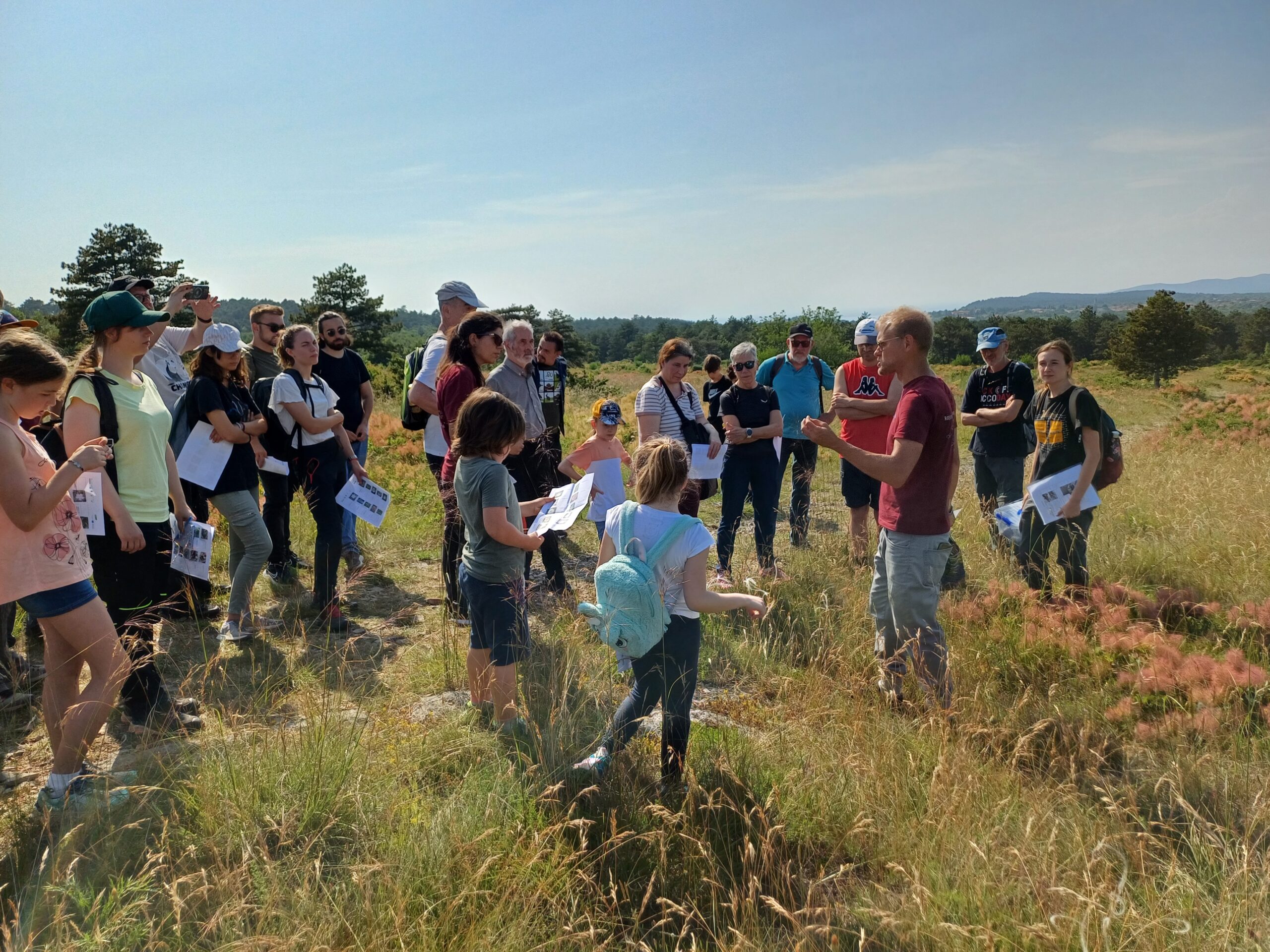Researchers from WWF AMP Miramare carried out botanical and faunal monitoring activities for the ReCo project on the karst dry grassland of Pian del Grisa (Trieste, Italy), with surprising results: about one hundred plant species (of which about ten are protected by EU directives and some of them are endemic), 35 bird species, about 10 beetles and over 60 butterflies (but this number is expected to grow in the coming weeks) were registered.
These outcomes demonstrate the exceptional biodiversity of the Karst plateau and the importance of preserving it from the advancement of the woodland through forest cutting and containment interventions, so that they were made the focus of two important events organized by WWF on World Environment Day.
First, the public meeting “Karst dry grassland: a heritage to save”, held on 5 June in collaboration with the Friuli-Venezia Giulia Region, the Municipality of Trieste and the collective management body of Contovello, was very well attended. During the conference, forestry technicians, botanists, wildlife and conservation experts presented the monitoring results as well as the management tools to adopt in the next months for the implementation of the ReCo pilot action on the karst habitat of Pian del Grisa, including tree cutting and shrub containment, fight against invasive alien species, combined native species transplanting and sowing.
Second, it was precisely the Pian del Grisa plain that hosted the second event on Saturday 7 June, a Bioblitz. About thirty people spent the whole afternoon with WWF botanists and wildlife experts, actively participating in the census of plant and animal species (birds, butterflies and beetles) present in this season, equipped with identification cards, binoculars, magnifying glasses and digital microscopes. Thanks to this citizen science activity, the fifth dry grassland floral species protected by EU directives was observed and new species of butterflies were observed.
And once summer has come, the hottest time of the project begins. Of course for what concerns the monitoring activities, but above all for the on-field operations that will affect two hectares of Pian del Grisa, such as the uprooting of invasive shrubs and the cutting of black pines and other trees now seriously threatening the conservation of this precious grassland habitat.
